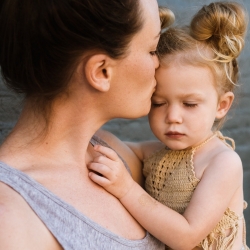To provide the best experiences, we use technologies like cookies to store and/or access device information. Consenting to these technologies will allow us to process data such as browsing behaviour or unique IDs on this site. Not consenting or withdrawing consent, may adversely affect certain features and functions.
The technical storage or access is strictly necessary for the legitimate purpose of enabling the use of a specific service explicitly requested by the subscriber or user, or for the sole purpose of carrying out the transmission of a communication over an electronic communications network.
The technical storage or access is necessary for the legitimate purpose of storing preferences that are not requested by the subscriber or user.
The technical storage or access that is used exclusively for statistical purposes.
The technical storage or access that is used exclusively for anonymous statistical purposes. Without a subpoena, voluntary compliance on the part of your Internet Service Provider, or additional records from a third party, information stored or retrieved for this purpose alone cannot usually be used to identify you.
The technical storage or access is required to create user profiles to send advertising, or to track the user on a website or across several websites for similar marketing purposes.
 The majority of companies believe that their purpose is not solely to make money, according to a new survey by one of Britain’s best known business associations. The Institute of Directors claims that its recent poll shows companies are re-assessing their role in society. It says the findings come at a time when corporations are facing greater pressure to recognise the impact of their decisions on the environment and the communities in which they work. More →
The majority of companies believe that their purpose is not solely to make money, according to a new survey by one of Britain’s best known business associations. The Institute of Directors claims that its recent poll shows companies are re-assessing their role in society. It says the findings come at a time when corporations are facing greater pressure to recognise the impact of their decisions on the environment and the communities in which they work. More →





 When it comes to conversations about work and workplaces, the past year has offered a fully immersive experience. Everybody now has an opinion. Inevitably some of them are better informed and more rooted in experience than others. So, after a full year of talk and as we return to some form of routine working life, the time has come to take stock. Few organisations and people will remain untouched by the sudden shift in attitudes towards working life, so we asked four workplace experts for their views on the current state of play.
When it comes to conversations about work and workplaces, the past year has offered a fully immersive experience. Everybody now has an opinion. Inevitably some of them are better informed and more rooted in experience than others. So, after a full year of talk and as we return to some form of routine working life, the time has come to take stock. Few organisations and people will remain untouched by the sudden shift in attitudes towards working life, so we asked four workplace experts for their views on the current state of play. 
 New research conducted by
New research conducted by 
 A large majority of the public are concerned about rising unemployment (82 percent), day to day living costs (80 percent), and low economic growth (77 percent), according to a
A large majority of the public are concerned about rising unemployment (82 percent), day to day living costs (80 percent), and low economic growth (77 percent), according to a 
 A report published by single parent charity,
A report published by single parent charity, 
 Long working hours led to 745,000 deaths from stroke and ischemic heart disease in 2016, a 29 per cent increase since 2000, according to the latest estimates by the World Health Organization and the International Labour Organization published in
Long working hours led to 745,000 deaths from stroke and ischemic heart disease in 2016, a 29 per cent increase since 2000, according to the latest estimates by the World Health Organization and the International Labour Organization published in 
 New research from
New research from 
 Tens of thousands of restaurant, hotel, event and leisure jobs are available as England moves to the next step on the roadmap out of lockdown on Monday 17th May, but jobseeker shortages are making these jobs hard to fill, according to new research from global job search engine
Tens of thousands of restaurant, hotel, event and leisure jobs are available as England moves to the next step on the roadmap out of lockdown on Monday 17th May, but jobseeker shortages are making these jobs hard to fill, according to new research from global job search engine 
 A new report launched by the
A new report launched by the 











June 3, 2021
Engineered familiarity in the new era of work
by Robin Bayliss • Comment, Working lives, Workplace design